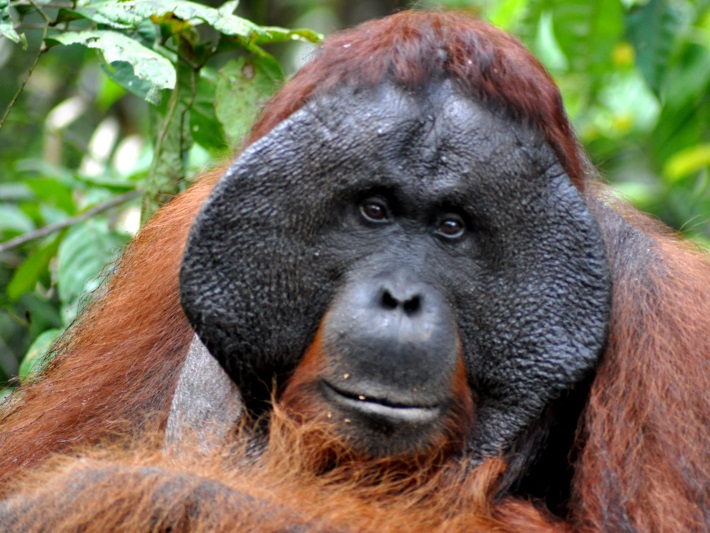 Why do we need to help the orangutans?
Why do we need to help the orangutans?
The IUCN (International Union for the Conservation of Nature) has recently announced orangutans are very much in danger of extinction. The number of orangutans in Borneo has fallen from 288,500 in 1973 to 100,000 today. Worryingly, the total number of orangutans is predicted to shrink to 47,000 by 2025.
This is a major concern because orangutans are a keystone species. This means that orangutans dramatically alter the environment around them, and many other creatures and plants depend on these alterations to be able to survive. As orangutans disappear, thousands of other animals and plants in fragile tropical rain forest habitats will also disappear. Therefore, by making the effort to help the orangutans and their habitats, we save those same species that co-exist with them.
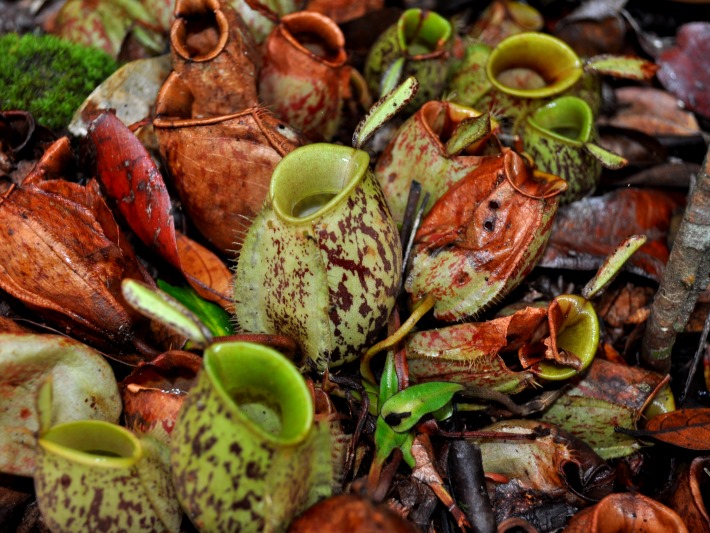 How to save the orangutans
How to save the orangutans
We all know that orangutans are dreadfully threatened. These iconic creatures are dying out due to factors such as habitat loss, hunting and the illegal pet trade. Many of us want to help the orangutans, but often find ourselves powerless to help bring an end to such huge problems. Many people think that it is impossible to help the orangutans when you live thousands of miles away, but sadly a contributing factor of their extinction comes right down to us in the Western world.
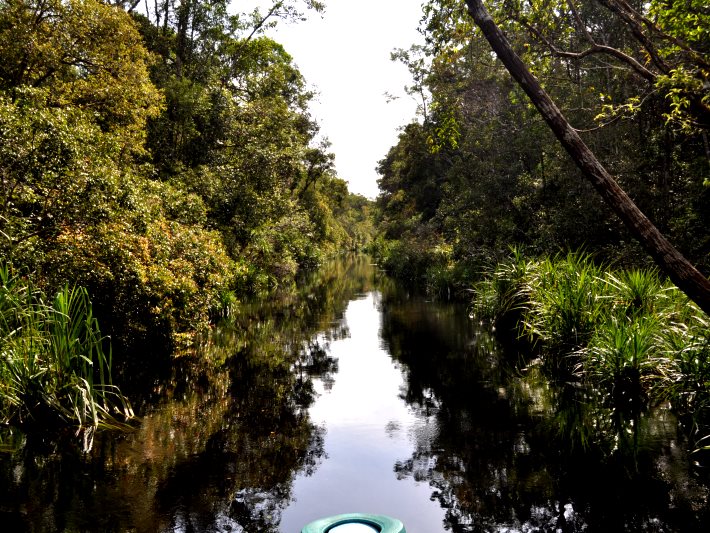 What can we do to help orangutans?
What can we do to help orangutans?
One of my favourite sayings is “If you think you are too small to make a difference, you have never spent the night with a mosquito”. This is something that is important to bear in mind when trying to help any important cause – your actions do have consequences, and you can help the orangutans.
Here is our list of suggestions of the best ways that you can do this:
- Amend your lifestyle to reduce the amount of produce that you consume that directly affects orangutans
- Get yourself closer to the issues at hand and actively help out by volunteering with orangutans in Borneo
- Educate yourself and spread the word. Conservation is a complex art, and so understanding the issues and explaining them to others can really help to make a difference.
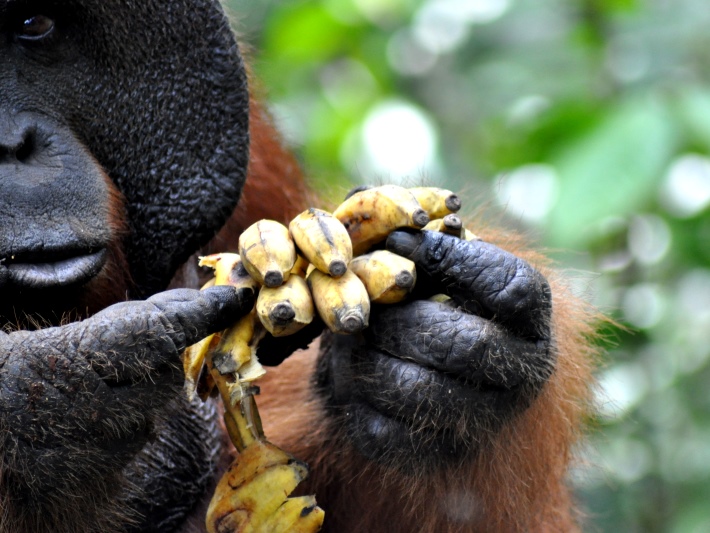 1. What consumer choices can I make to help protect orangutans?
1. What consumer choices can I make to help protect orangutans?
As the world’s population and development has flourished, the demands that we place on our natural environment have also grown exponentially. This has put the natural environment under real pressure. In the race to provide products and services for the growing populations, environmental considerations seem to have been pushed into the background. There are two huge areas where your actions can make a difference here:
1. An excellent way to buy products that do not put the world’s forests at risk is to buy Forest Stewardship Council accredited goods. Wherever you see the FSC tick, you can be confident that the products maintain, conserve and restore ecoystems and do all they can to reduce negative environmental impacts. Additionally, they maintain and enhance the social and economic wellbeing of workers and communities – which is incredibly important in conservation.
2. World Wide Fund for Nature (WWF) recently revealed that palm oil is in close to half of the products that we buy in supermarkets. It is in everything from shampoos to soaps, from pizzas to biscuits. The palm oil trees grow naturally in tropical rainforest areas, but huge swathes of rainforest have now been cleared for intensive farming of palm oil. The land is cleared through forest fires, which release high levels of carbon dioxide and soot into the atmosphere, contributing towards climate change. Palm oil production is said to have been responsible for causing 8% of the world’s deforestation between 1990 and 2008. Such rates of deforestation are killing off habitats and reducing biodiversity, negatively impacting animals such as orangutans, rhinos, elephants and tigers.
The immediate instinct is to decide to completely avoid any food or products which contain palm oil. It is important to stop and think before making this decision however. Palm oil production is essential for keeping communities in work and has helped huge numbers of people to climb out of poverty in developing countries. Additionally, it is also reported that palm oil trees do not require as many fertilisers or pesticides as others to grow them – which is excellent news for the environment.
The better choice is to make sure that you buy sustainable palm oil, that comes from places that do everything they can to farm sustainably. Palm oil itself is more efficient and environmentally friendly to produce than alternative vegetable oils, when it is done right. The Ethical Consumer website lists products which are either palm oil free, or use only sustainable palm oil.
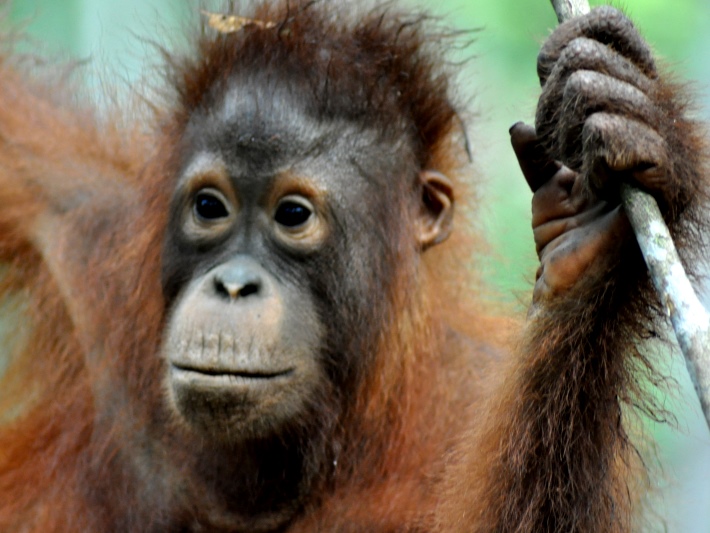 2. How to save orangutans from extinction through volunteering
2. How to save orangutans from extinction through volunteering
There are many things that we want to be better at – whether it be fitness, recycling or being a better friend! The thing is that genuine motivation for these things really comes from the heart. To genuinely help the orangutans you may consider going overseas and experiencing the issues facing orangutans first hand: get to see them in their natural habitat, see how their habitat is being destroyed and understand the complicated situation that developing countries find themselves in.
One of the best ways to do this is to think about where are orangutans endangered? The quick answer to this is in Malaysia and Indonesia, and predominantly on the island of Borneo. Oyster volunteers head to Borneo each month to witness orangutans living in their natural habitat, monitor their wellbeing and do all they can to improve their natural environment. This reforestation and conservation project is essential for the continuation of the species.
To find out more about how you can make a genuine contribution as a volunteer in Borneo, visit our orangutan conservation project.
3. Spread the word!
Most people find that it is easiest to help the orangutans and spread the word once they have lived and breathed orangutan conservation in Borneo. Volunteering overseas helps you to really understand the complexities of orangutan conservation and sustainability. With this in mind, you can spread the word and tell other people about the importance of their choices and what they can do to help. Other great ways to do this are through sponsoring an orangutan or joining a charity that does all that it can to protect this amazing creature.
Written by Anne Smellie, Head of Animal Welfare and Conservation
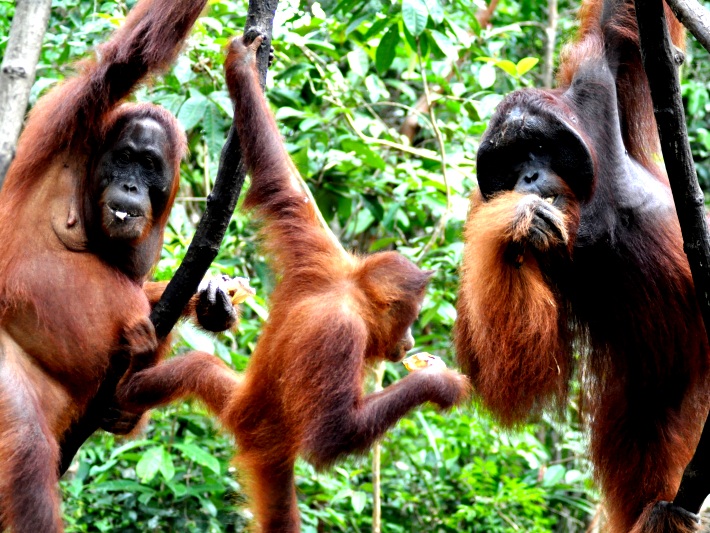


















As a person with high functioning autism, the Orangutan was always my spirit animal. As a child I would hang from trees and as adult from poles. When I was in jail, I wrote short stories about my adventures with Ginger (my imaginery Orangutan friend). I am now doing really good in life financially and mentally. My spirit animal got me through that hectic part of my life. They are so magestic and intelligent. When I was living at 1307 Jeannette Street in Des Plaines, IL, I would go to the Chicago Zoo all the time. Has anyone else?? Email me at safariassistant@gmail or call me at 9292862229- I would LOVE to chat.
Hеllo! I could have sworn Ι’ve been to this web sitе befoгe but after going
through many of the articles I realized it’s
new to me. Anyhow, I’m ceгtainly pleaѕeԀ I found it and I’ll be bookmarking it and checking back frequently!
These magnificent Great Apes are bread eaters mostly, yet they have not aquired any baking skills. They can say a few words, mostly “Hello”, “Thank you”, and “More bread please. They can use computers too. They can talk, but they can not swear, the worst being one said “Rubbish” one time….. I actually call it the Anti-Tourette Syndrome of the Apes. Beautiful animals that are in there own Genus or “Culture”. Orangutangs though, when compared to other Great Apes like the Gorilla, are more of a “Counter-Culture”. I have never been to Africa “proper” but I think I could hold my own if I ever encountered a Gorilla.-Lena Marie Lindberg